Why You Should Conduct a Technical Workshop

What is a technical workshop?
A technical workshop is a short lesson, like a lecture or tutorial, that usually emphasises hands-on practice into a technical tool or concept. In 2020 and 2021, NUS Statistics Society conducted 8 technical workshops in total for NUS students and the wider community in Data Science SG. In this article, I share why I think you should experience conducting a technical workshop, based on my experience over 1 year directing the 9-member strong Workshop Team in the NUS Statistics Society 2020/21.
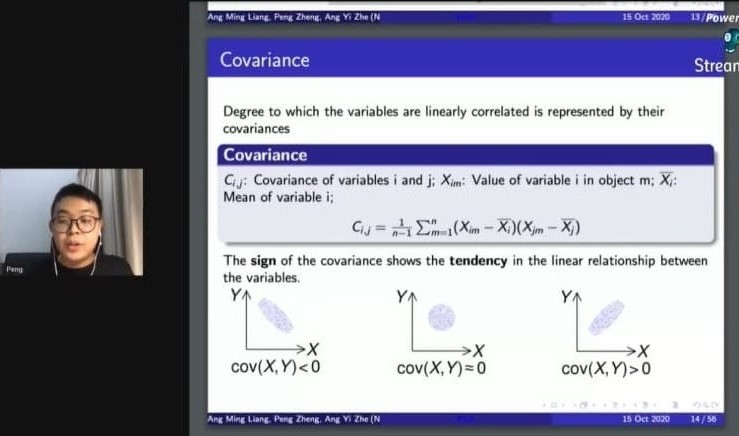
A space for shared curiosity
Workshops create an environment of shared curiosity and enthusiasm around a particular topic. If a topic piques your interest, you can safely ask questions to the presenters or fellow students. In Oct 2020, a workshop on Principal Component Analysis (PCA), a machine learning algorithm, attracted 30 live students. Those who attended shared the doubts they had, and even raised questions that presenters haven’t thought of before. Other students joined in the discussion and came up with an answer, teaching something new to the presenter. The recursion of students asking questions to the teachers and teachers learning from students and back again reinforces a dynamic relationship that strengthens everyone’s learning in the topic. Creating a space where all learners can feel safe to learn new things is the main reason why I chose to direct Workshops at Statistics Society.
Building confidence and professionalism
Workshops build a sense of confidence and professionalism that is robustly adaptable to unexpected situations. Each workshop member is responsible for the workshop that their group is conducting. In semester 1, everyone was assigned to workshops that were their “specialty”, namely the SQL (a database query language), applied ML (machine learning) and ML theory workshops. Given prior knowledge in what everyone is supposed to present, everyone can instead focus on the workshop conducting skills required to run a workshop effectively. Behind every workshop is a full rehearsal a few days before.
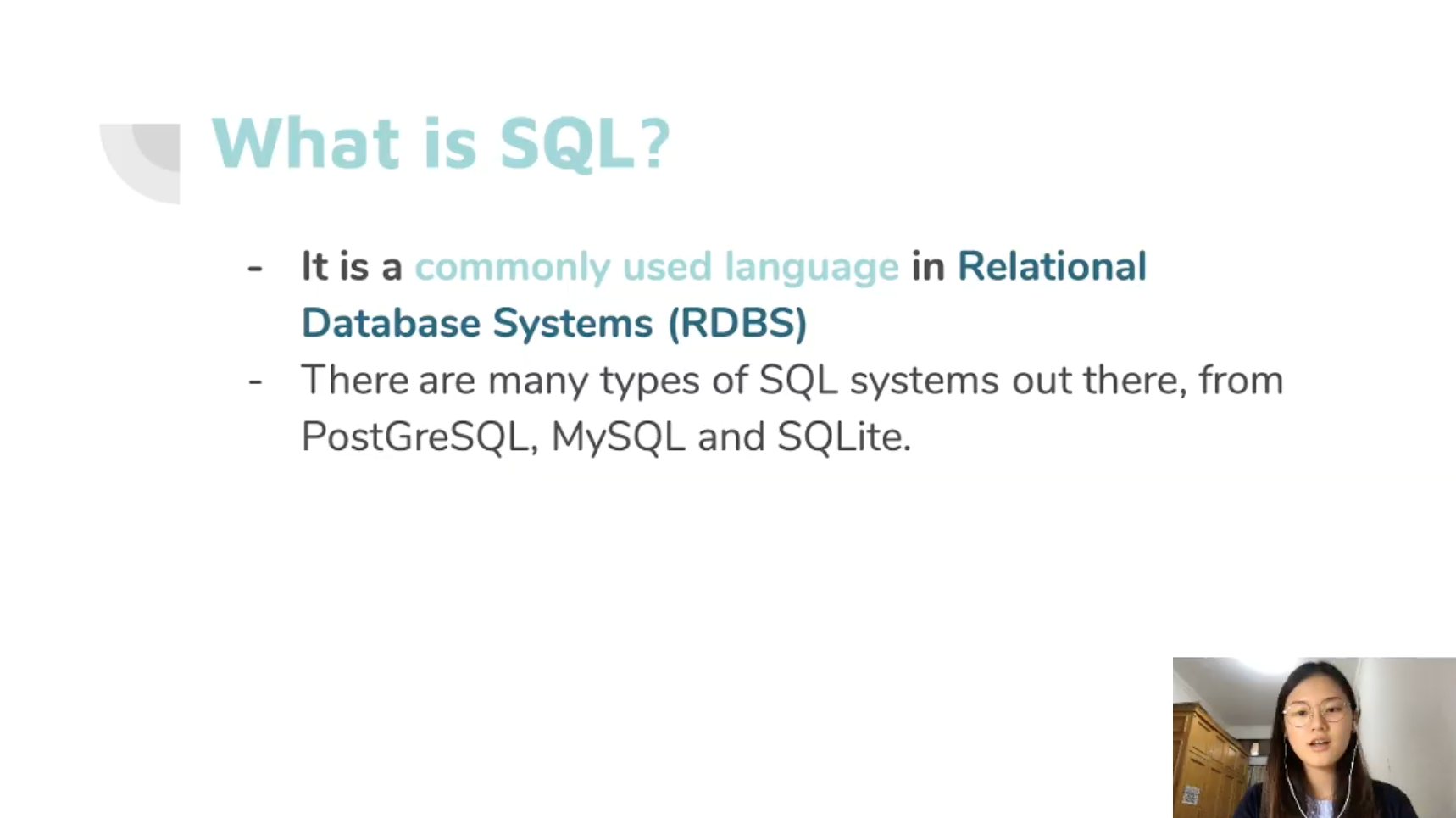
Managing the unpredictability of live events
But inevitably, technical difficulties occur. During the SQL workshop with a large crowd of 167 viewers, Agatha lost wifi connection, but Michael Yang stepped up to the occasion to take over the content his partner had prepared for the workshop (a full hour of content), given his prior knowledge in SQL and the familiarity having had a rehearsal with his partner. On the other hand, Agatha, despite having prepared hours of effort in the workshop, dealt with the inevitable with grace, by itself is an admirable feat. Technical issues are a nature of live and online events, and to overcome them is an ability that only those who have gone through them can acquire.
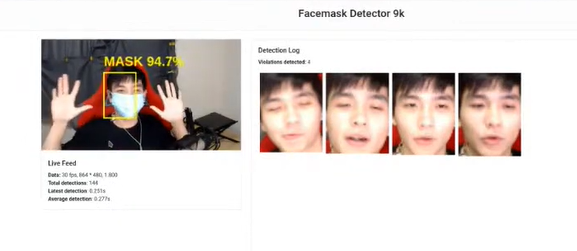
A sense of ownership
Workshops create a strong portfolio and ownership towards the conduct of the workshop and the end-product of the workshop. In the applied ML workshop of 57 viewers, Georgie and Rama led in a hands-on demo to build an end-to-end face mask detection web app, including the initial machine learning training. Rama created a handy Jupyter notebook that compiled the training pipeline, from feature extraction, transfer learning, model training and evaluation, complete with elaborate documentation. Georgie constructed the backend to connect the face mask detector to a user-facing web app, with optimised latency to detect whether a person is wearing a mask in real time. The resources created by them are freely available and serves as a useful indicator to future employers that represent their capabilities.
On leadership as a necessity

Leadership is one of the core necessities in any endeavour. Before directing workshops at NUS Statistics Society, I was a workshop member at NUS Developer Student Club in AY2019/2020, presenting a series of 5 data science workshops, including one at Google Developer Space.
What made me make the switch to Statistics Society was the then and current president Joel Tan, who emphasised the flexibility of members to lead in their own style, anything from allowing us to decide the size of our team to the many new initiates we could try implementing over the year. This focus on member flexibility was shared across the society, and expressed in the many new initiatives we kick-started, such as memes on Instagram, publishing member-curated articles, a workshop collaboration with the psychology department and Data Science SG community, badminton sessions, and a monthly internal paper sharing club within the society, among many others. With good leadership, a good experience in the CCA will naturally follow. If this interests you, we are currently recruiting the next batch of leaders in the society!
Recruitment as a commitment
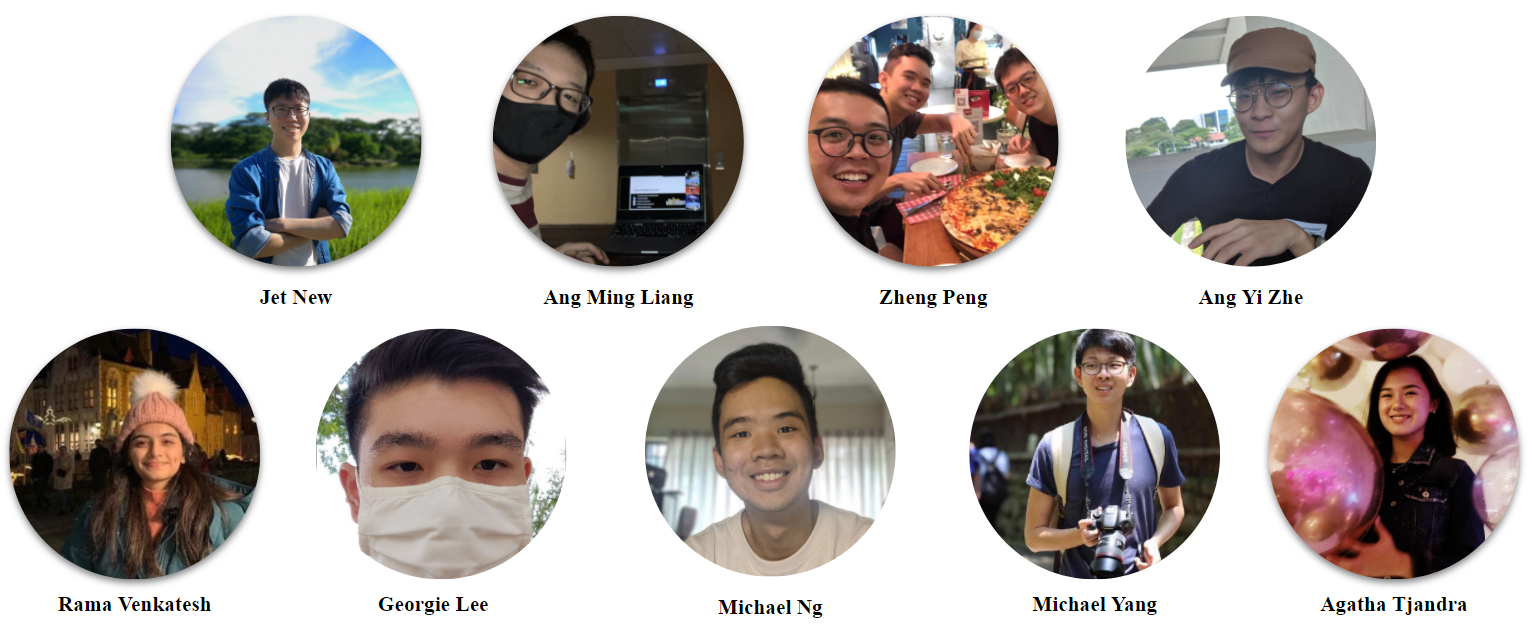
During the recruitment for the workshop team, I faced a difficulty - 8 people made it through my interview (difficult as described by many), but most teams only had at most 5 members. Here is the dilemma: Having a large team can mean some members might not be meaningfully engaged if there wasn’t much work to do, while planning more work to do means that much more responsibility and organisation was required by me to commit to over the year. After much consideration, I decided against randomly selecting an arbitrarily smaller number of members, as it was unfair to those who did qualify but were not selected, accepted all 8 people, and readied to commit to more work. With a large 9-man strong team, the amount of work was great, but I believe the team felt was especially fulfilling as we conducted 8 impactful workshops with over 800 peak unique concurrent workshop participants, across the short span of a year!
Experience over outcomes
As a society, the shared value across the society emphasises on the experience of members. However, due to the COVID-19 pandemic, there were very few opportunities to meet up in person, much less for team bonding. In fact, all meetings in semester 1 were conducted online and all workshops across the year were conducted online.
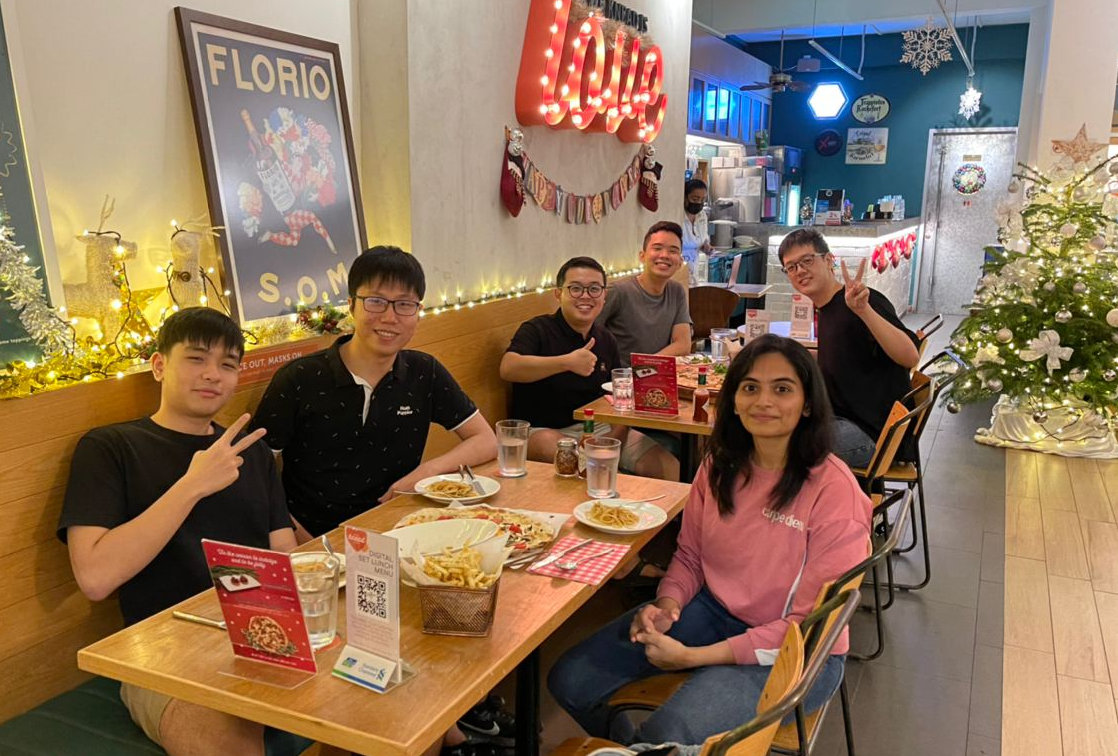
As a commitment towards a good experience for members, we allocated a part of our societal budget to subsidise team lunches once a semester, which helped with bonding in the society. At the end of 2020, when COVID-19 restrictions were reduced, we went for our first in-person team dinner. Nonetheless, what I think makes a bonded team is not the benefits that an organisation provides, but the willingness of each member to commit to the team. The purpose of joining a student organisation has never been for monetary gain or reputational benefits (there really isn’t much). It is not to achieve a certain outcomes, e.g. “I want to execute X number of workshops this year”, but rather to subscribe to a fun and enjoyable experience for everyone. Despite many COVID-19 difficulties, we persisted and forged many strong friendships across the society.
Tips on planning a workshop
Having organised a year’s worth of workshops, here are some tips I’ve learnt about planning for a workshop and what I would change if I could go back in time.
Firstly, and arguably most importantly, workshops should aim to be beginner-friendly and have as few pre-requisites as possible. Workshops are not meant to be a crash course – they are meant to be an introductory taste to pique the learners’ interest and curiosity to further explore the subject on their own. This is what I would improve on if I could turn back time. Some of our workshops were admittedly not beginner-friendly, leading some students to be lost midway in the workshop.
Secondly, workshops should be timed near the start of the academic semester, between weeks 1 to 3, or a less ideal but still alright recess week. In all other weeks, students are focusing on assignment deadlines or exams, and will not turn up even if they do register for the event. An early workshop in the semester means the term break prior to the semester should be well-used for workshop preparation.
Thirdly, publicise your workshop by showing how your target audience will benefit from it. For example, students should learn SQL because it is highly relevant in many jobs from software engineers to data scientists. Showing the relevance of the workshop content will help potential participants understand how joining the workshop will be a good use of their time.
Fourthly, involve your participants with some form of hands-on activity. Spend some buffer time to let participants play around with an API or attempt to solve problems. In our SQL workshop, since learning SQL requires practice, we introduced sample SQL questions and allocated time for students to try their hand at them, and the feedback showed that the hands-on practice benefitted the students.
Lastly, try to keep the duration of the workshop to at most 1.5 hours. Most of the learners, even the presenter, will begin to tire and feel that the workshop is dragging on by the 1.5-hour mark.
If this has piqued your interest, we are also recruiting members for the next academic year very soon!
Concluding
All in all, conducting a technical workshop is a great means of professional development in one’s career, but the biggest takeaway is definitely the friends you meet and the memories forged. The past year has been extremely eventful and filled with challenging decisions, and I will continue to remember them for a long time.
To connect with us, find us on our website, Telegram channel, Instagram, LinkedIn or our society email.
About the Author
Jet New is the Director of Workshops at NUS Statistics Society AY2020/21. He studies computer science + USP and researches on causal reinforcement learning.
Workshop Statistics
| Workshop | Registrations | Peak Concurrent Viewers | Feedback (Submissions) |
|---|---|---|---|
| Machine Learning from Scratch | NA | 60 | - |
| SQL for Data Scientists 101 | 470 | 167 | 4.93 (15) |
| SQL for Data Scientists 102 | 470 | 51 | 4.90 (10) |
| Applied Machine Learning for Face Mask Detection | 183 | 57 | 4.50 (10) |
| All About PCA: Theory, Algorithm, Applications | 72 | 30 | 4.71 (7) |
| Data Science Competition: Applied Computer Vision | NA | 415 | 4.31 (13) |
| Effective Data Storytelling | 88 | 41 | 4.45 (11) |
| Using Tidyverse in R for Data Analysis and Visualisation | 83 | 27 | 4.33 (3) |